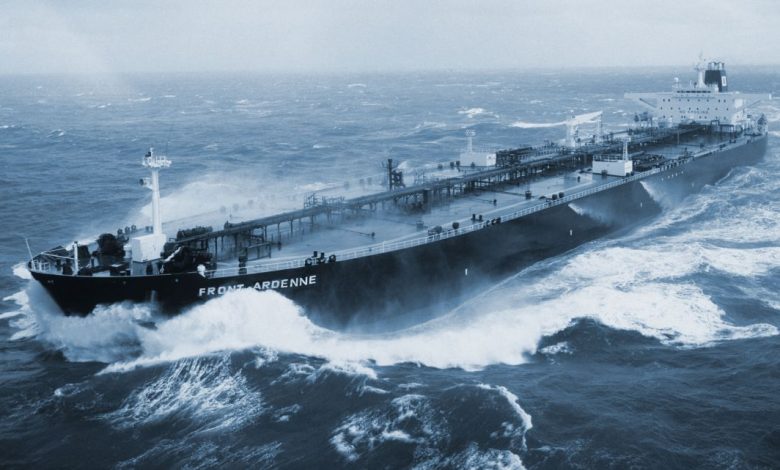The world’s going to hell: Why your brand is more important than ever

Let’s not spend too much time on the state of the markets. When even the insurers are complaining about tough times things must be grim. And they still have positive balance sheets. It’s bad. We know.
This article isn’t about hardship; I’d like to think it’s about hope. I mean…it’s about marketing and branding…and if you can’t be positive as a marketer then you may as well pack up your bags and go and become a journalist. And we all know what journalists are like…it’s why they’re never invited to industry parties.
But I digress. Hope. For companies and individuals who see the benefits of developing a strong brand and/or reputation – really the same thing – there has, in my humble opinion, never been a better time to make an impact on the market. Why? Simply because no one else is doing it seriously; companies that were have stopped (costs); and most of your competitors either don’t know where to start or are paralyzed by the state of the markets. This means the field is open and the opportunity is standing there, staring you in the face…you just have to reach out and take it.
Misery Loves Company
The importance of a brand only becomes evident when you actually need it. A number of shipping/maritime companies (you know who you are), have felt the full impact of this over the last 12 months. When the markets are this bad, it is assumed that everyone is in the same boat, that everyone is hurting in the same way, that there is no difference. Rumours hurt, because the industry – your clients included – see nothing else.
A typical shipping and offshore view is “best just keep your head down”; “we let the quality of our work do the talking”; possibly…”send it by fax”. Though, that being said, there are plenty in the industry who have no problem promoting themselves or their companies very successfully. But increasingly the industry is waking up to the need for professional marketing: maritime banks, insurers, ship managers, suppliers, owners, and charterers are all slowly upping their game.
The competition gets fierce
In a tight market, the competition gets tough. Prices are forced down as owners have less cash to spend, and suppliers fight to either just keep afloat or to increase their market share. In this environment it becomes hard to avoid the race to the bottom scenario. For companies, and individuals, who have a value proposition based on quality, this poses some real problems. In a market that is seemingly dictated solely on price, how do you articulate the value of your product or service over cheaper competitors?
On top of that your biggest rival has just got a new website and has been interviewed by the maritime press (no doubt because they bought that advertisement on the following page). Call marketing…or reception…or whoever’s in charge of this and get an interview with Splash 24/7. That’ll make the Board happy.
Good luck with that.
Develop a Strategy and Set Your Targets
Although it’s difficult to admit, many companies find themselves in exactly this position when it comes to marketing. Being reactive only gets you so far, and the organizational gains you will make with this approach will be minimal at best. And by ‘organizational’ I mean ‘sales’.
Like it or not, it takes time to build a brand and corporate reputation – probably around 18 months to make a noticeable impact. Longer if you have been affected by (true/untrue) market rumours or if there has been negative press.
But you have to start somewhere:
1) Develop a marketing strategy: This is not as easy as you may think. Your marketing strategy should deliver on your wider corporate strategy and business plan. It should also include sales (external), HR (internal), IT, and any external suppliers you are going to need to be involved (PR for example).
2) Target: Getting the wider market to buy-into the “brand X Maritime inc” value proposition will take time. But it is far easier (and faster) to initially influence your existing client base if your marketing is targeted here. This is why your sales teams are such an important part of the marketing/branding equation – because they can carry the message straight to your clients.
3) Innovate: Like never before, there are marketing tools available to help companies innovate and stand out from the crowd. From a marketing perspective there has never been a more exciting time to build a brand. Digital marketing and social media are game-changers. Company size, resources, and budget are now far less important when it comes to building a brand. You can be agile and responsive, where a large competitor is slow and bureaucratic. You can be client/sales focused, where others look self-obsessed.
Of equal importance is cost. Using tools like social media is far more cost-effective (inexpensive) than you might think. This is the reason traditional media is struggling to deal with online competition. Using digital marketing well isn’t free, but you will have far more control over the effeteness of your spend.
This is not to say bigger companies can’t, or shouldn’t adopt similar strategies and tactics – but using digital marketing/social media effectively typically gets harder the bigger the company. We have already seen a number of larger shipping companies, banks, insurers, and ship manager try to use digital marketing – and fail.
I’d provide you with the A-Z of ‘Innovative marketing for the maritime sector’…but that would be giving away all my trade secrets. However…drop me a note telling me how much you like my article and I’ll provide you with my two cents on what you are doing right/wrong on the digital marketing front. Just because I care.
Until then…Remember, good marketing doesn’t mean bigger budgets…but make sure it involves sales.
